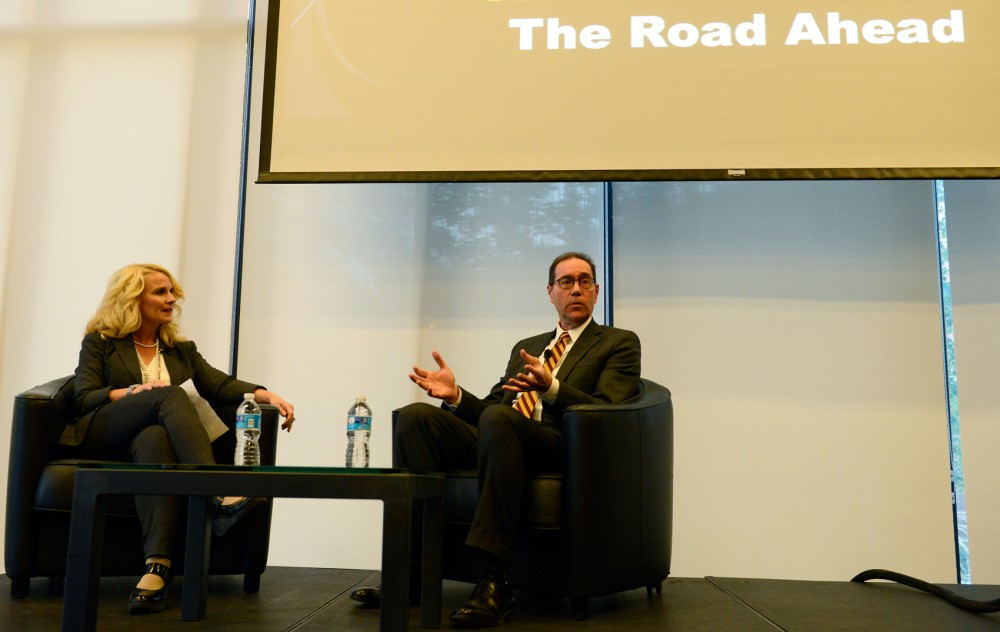In a McNamara Alumni Center room packed to the walls with former University of Minnesota students Wednesday, the College of Liberal Arts presented an update to a plan proposed by Dean John Coleman intended to bolster the college’s reputation.
Coleman, who announced the plan last year to improve CLA’s research and diversity and increase the desirability of graduates, said the project is going well, partly due to new programs and more advising staff.
Last year in his “The Road Ahead” presentation, Coleman outlined CLA’s five primary goals. Coleman created five teams of faculty members and students to find out how to best implement each goal.
The first goal was to ensure graduates are prepared for life after college and to make CLA alumni the most desirable graduates possible.
To accomplish this goal, CLA has doubled the number of career advisors available to students and hired a new internship coordinator to secure internships for its students.
This comes packaged with Coleman’s career bundles program, which is intended to give students three-tiered support in finding jobs: circular support, experiential support and mentoring support.
In this system, students are given suggestions for helpful classes in their chosen fields, given research opportunities and internships to have real experience, and provided with academic mentors.
Psychology professor Mark Snyder spoke at length about CLA’s new efforts to expand its research abilities, which is Coleman’s second goal.
“Without research we wouldn’t have anything to teach in our class,” Snyder said at the presentation.
Snyder pointed to CLA’s Talle Faculty Research award, to which any faculty member tenured in the past four years may apply.
The award provides funding to professors at the middle stage of their careers and can give professors an extra cash boost to do more research, Snyder said.
Coleman also spoke about his move to double the Diversity of Views and Experiences Fellowship for funded summers, which provides students with money for summer
research. It is awarded to approximately 20 first-year graduate students from underrepresented groups.
Coleman said the doubling of funded summers will increase retention of minority students.
“From day one of last year, I said the college should be on the offense, and I believe we’re on the offensive for liberal arts,” Coleman said.


